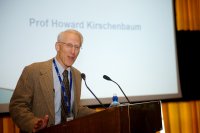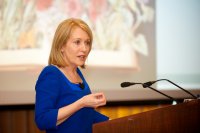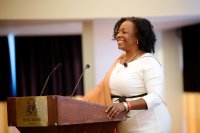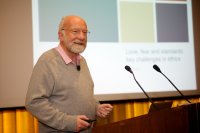IACP Annual Conference 2015
Friday 16 & Saturday 17 October
Royal Marine Hotel, Dún Laoghaire, Co Dublin
Click here to view photos of the Conference.
The first IACP Annual Conference took place on Friday & Saturday 16 / 17 October 2015 in the Royal Marine Hotel, Dún Laoghaire, County Dublin, to overwhelmingly positive feedback.
Attendees and Presenters alike reported having a very productive experience with great opportunities to learn, network and make new friends. There was a great sense of comradery and a shared experience by those in attendance. The theme of this years’ conference was Strengthening Therapeutic Relationships. The conference provided a perfect opportunity to address this question by showcasing and discussing a wide range of counselling / psychotherapy practices.
Four Keynote and eighteen Concurrent Sessions, delivered by high calibre local and international presenters, engaged with and explored this question. The conference was specifically structured for participant engagement and all attendees were encouraged to fully take part by contributing their knowledge and bringing their own questions. IACP Member, Stuart Wilson, was excellent as Conference Host and Keynote facilitator.
On Friday morning, Professor Howard Kirschenbaum - former Chair of the Department of Counselling and Human Development in the University of Rochester, New York, opened the conference. Based on many new sources, including Rogers’ private papers, heretofore unavailable, and on interviews with Rogers’ family and closest colleagues over the years, Professor Kirschenbaum had many surprises and new learnings about Rogers’ life and work. In his presentation, he discussed some of his discoveries about Rogers, personally and professionally. Carl Rogers was a much more complex personality than his widely known persona suggests and his work on therapeutic relationships has had a wider impact than is often recognized. Professor Kirschenbaum shared some of his excitement about literally re-writing history and the insights he gained about one of the major social revolutionaries of the 20th century.
The second Keynote on Friday afternoon was presented by Dr Marcella Finnerty. Dr Finnerty is a founding member and director of The Institute of Integrative Counselling and Psychotherapy (IICP), an academically and professionally validated provider of third level counselling and psychotherapy education. She is also a founding member and director of The Village Counselling Service (VCS), a registered charity and the largest community-based primary care counselling service in Ireland. Her areas of interest include promoting psychotherapy research, academic development and psychotherapy integration. She advocates a pluralistic perspective in therapy and teaches on the MA in Pluralistic Counselling and Psychotherapy at IICP, as well as supervising students’ research portfolios. She has held a variety of senior faculty positions in Trinity College Dublin and the William Glasser Institute and has taught, presented and published nationally and internationally on counselling and psychotherapy theory, practice and research. Dr Finnerty’s presentation was entitled Yearning for Connection.
Dr Finnerty explained that decades of investigations have consistently demonstrated that the most powerful predictor of positive therapeutic outcomes depends less on what type of therapeutic interventions we employ, and more on what kind of therapist-client bond we develop. A recent large international study involving more than 10,000 therapists found the majority not only yearn for a deep connection with their clients but consider it the pinnacle of their professional development. Research into therapist effects tells us that some therapists consistently have better outcomes than others and that clients’ perceptions of the alliance may be different to their therapist. So how do we know if what we are doing is working and what do we do if it’s not, Dr Finnerty asked? The presentation invited attendees to explore the evidence for the potential role of research and feedback assessments in strengthening the therapeutic relationship and developing a pluralistic perspective to practice.
On Saturday morning Dr Cirecie A. West-Olatunji opened the second day of the IACP conference. Dr West-Olatunji serves as associate professor and director of the Center for Traumatic Stress Research at the University of Cincinnati. She is also immediate past president of the American Counselling Association (ACA). In the USA, Dr West-Olatunji has initiated several clinical research projects that focus on culture-centred community collaborations designed to address issues rooted in systemic oppression, such as transgenerational trauma and traumatic stress.
Dr West-Olatunji has also conducted commissioned research under the auspices of the: National Science Foundation, ACA, Kellogg Foundation, federal Witness Assistance Program, Spencer Foundation, the American Educational Research Association, and the African-American Success Foundation. Her publications include three co-authored books, numerous book chapters, and over 50 articles in peer-reviewed journals.
Dr West-Olatunji’s presentation was entitled “Counsellor Self-Care: 5 Steps to Minimizing Compassion Fatigue”. Dr West-Olatunji talked about compassion fatigue and its impact on counsellor effectiveness. She invited the attendees to build a “self-care regimen” using 5 key evidence-based interventions.
The second Keynote on Saturday afternoon was presented by Professor Tim Bond.
Professor Bond is a counsellor, educator and practitioner specialising in teaching research methodology and professional ethics (education, counselling, and research). He continues to offer a small counselling and supervisory practice. He is internationally renowned for his contributions to counselling and research ethics and particularly his interest in dialogue between different cultural and moral positions.
Professor Bond’s current work includes revising the Ethical Framework for the British Association for Counselling and Psychotherapy and teaching at the University of Malta. He has recently published a new edition of Standards and Ethics for Counselling in Action with interactive online resources.
Professor Bond’s presentation was entitled “Love, fear and standards; the challenge of professional ethics”. He explained there are many ethical opportunities and hazards in contemporary practice. In his presentation Professor Bond reflected on his recent experience of discussion with therapists about the competing ethical challenges posed by their work. He drew on examples that included working online and cross-culturally where the ethical challenges are developing most rapidly.
The conference also hosted eighteen separate Breakout Sessions with renowned leading experts in each field:
- Christine Louis De Canonville - Narcissistic Victim Syndrome.....what the heck is that?
- Dr John Sharry- Building therapeutic relationships with parents, adolescents and children – a strengths-based approach
- Heather Moore - All Changed, Changed Utterly, A Terrible Beauty is Born. An Exploration on the Effects of Suicidality on the Experienced Clinician
- John Foster - The Listening Heart- What makes us think as counsellors that we are exceptional listeners?
- Maeve Lewis - The Complex Therapeutic Needs of Adult Survivors of Child Sexual Abuse
- Bernadette Ryan - Anima and Animus: Jungian Archetypes at Play in Couple Therapy?
- Prof Mary Creaner - Strengthening the Supervisory Relationship: Research Informed Practice
- Harriet Parsons - Understanding and working with people with Eating Disorders
- Eoin Stephens - The Therapeutic Relationship in the Cognitive-Behavioural Therapies: Past, Present & Future
- Dr Eoin Galavan - The Psychology of Suicide
- Margaret O’Reilly Carroll - Including the voiceless and silent groups in counselling and psychotherapy; Looking at a more wholistic intercultural model of therapy
- Jamesina Rooney - Therapeutic Relationship: You, I, We
- Anne Brennan - To risk or not to risk, alas poor client I knew you not
- Dr Dione Mifsud - The Internationalisation of Counselling
- Padraig O’Morain - Mindfulness for people who don’t / won’t meditate
- Prof Garrett McAuliffe and Davide Marriotti - Practicing Positive Counselling: Moving from What’s Wrong to What’s Strong
- Christine May - Improving Therapeutic Relationships – The Impact & Influence of the Supervisory Relationship on the Therapeutic Relationship
- Karen Ward - ‘New Irish Research into Spirituality and its Place within a Counselling Psychotherapeutic setting’ based on current research ‘to investigate how the meanings of Spirituality develop amongst accredited counsellors when practicing a new shamanic energy therapy technique.
Networking and Fun:
The social and peripheral conference activities proved highly successful with delegates participating in and enjoying:
- The Gala Dinner: 70 people attended the very enjoyable dinner on Friday evening.
- Perusing the books and items at the IACP and Veritas bookstands. The IACP stand was managed by IACP volunteers: Grace Harrison, Christine Concannon and Clare O’Nolan. We are very grateful to them for their help.
- Talking with the conference exhibitors
- The Tour of the IACP Offices
- Networking at the conference café
- Learning about Anam Cara, the conference charity. Anam Cara CEO, Sharon Vard, gave an excellent presentation and introduction to Anam Cara at the Gala dinner.
- The tour of the Maritime museum
- The excellent band, Soul Purpose at the gala dinner
Finally, the Royal Marine Hotel provided an excellent backdrop to the event. Their exceptional staff, went out of their way to ensure that all IACP needs were met.
News
- IACP Members Survey Report 2013
- IACP Supports Appointment of Counselling and Psychotherapy Board [01/03/2019]
- Raising Course Accreditation to Degree in Counselling & Psychotherapy Level 8 on NFQ.
- IACP Membership Survey 2015
- New IACP Headquarters
- IACP Behaviour & Attitudes Research 2013
- CPD Survey Results
View AllEvents
FRI 03 MAY Supervisors Forum - Supervision of Trauma -Attachment Psychotherapy Supervision Clinical Case Presentation (03/05/24 & 04/05/24) Presenter: Miriam Taylor Facilitator: Anne Burke MON 13 MAY In Person - SRC Network Event - Domestic Violence and Coercive Control: Services by ADAPT Kerry Refuge and the Protective Services Unit Kerry Division (13/05/24) Presenters: Emma O'Mahony ADAPT Refuge Co-Ordinator & Detective Sergeant Michelle RocheThis website uses strictly necessary session cookies only. Session cookies are requred to ensure members can access the members area and associated functions reliably. Session cookies expire automatically upon exit.

